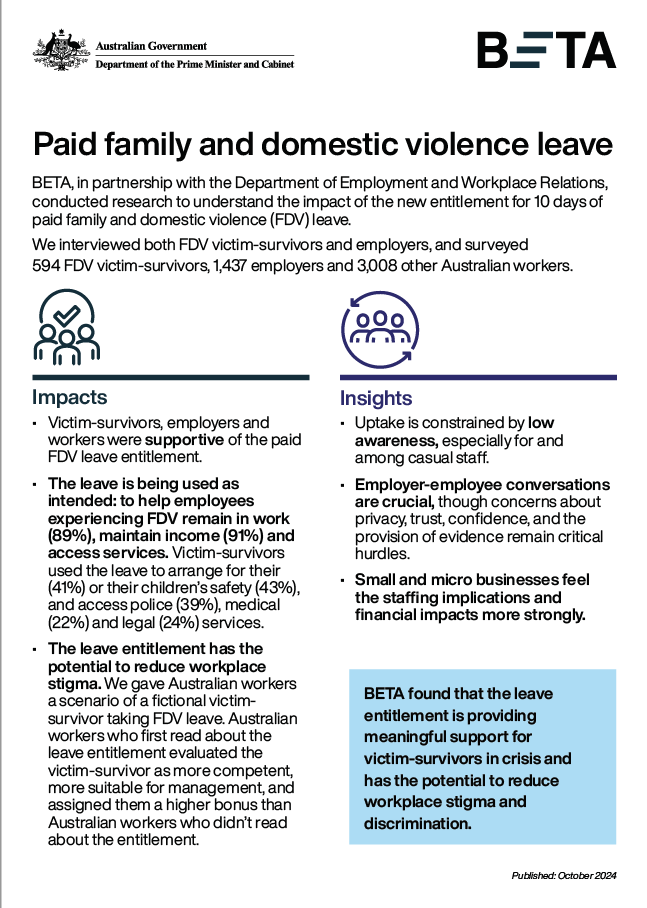BETA, in partnership with the Department of Employment and Workplace Relations, conducted research to understand the impact of the new entitlement for 10 days of paid family and domestic violence (FDV) leave.
We interviewed both FDV victim-survivors and employers, and surveyed 594 FDV victim-survivors, 1,437 employers and 3,008 other Australian workers.
Impacts
- Victim-survivors, employers and workers were supportive of the paid FDV leave entitlement.
- The leave is being used as intended: to help employees experiencing FDV remain in work (89%), maintain income (91%) and access services. Victim-survivors used the leave to arrange for their (41%) or their children’s safety (43%), and access police (39%), medical (22%) and legal (24%) services.
- The leave entitlement has the potential to reduce workplace stigma. We gave Australian workers a scenario of a fictional victim-survivor taking FDV leave. Australian workers who first read about the leave entitlement evaluated the victim-survivor as more competent, more suitable for management, and assigned them a higher bonus than Australian workers who didn’t read about the entitlement.
Insights
- Uptake is constrained by low awareness, especially for and among casual staff.
- Employer-employee conversations are crucial, though concerns about privacy, trust, confidence, and the provision of evidence remain critical hurdles.
- Small and micro businesses feel the staffing implications and financial impacts more strongly.
BETA found that the leave entitlement is providing meaningful support for victim-survivors in crisis and has the potential to reduce workplace stigma and discrimination.


